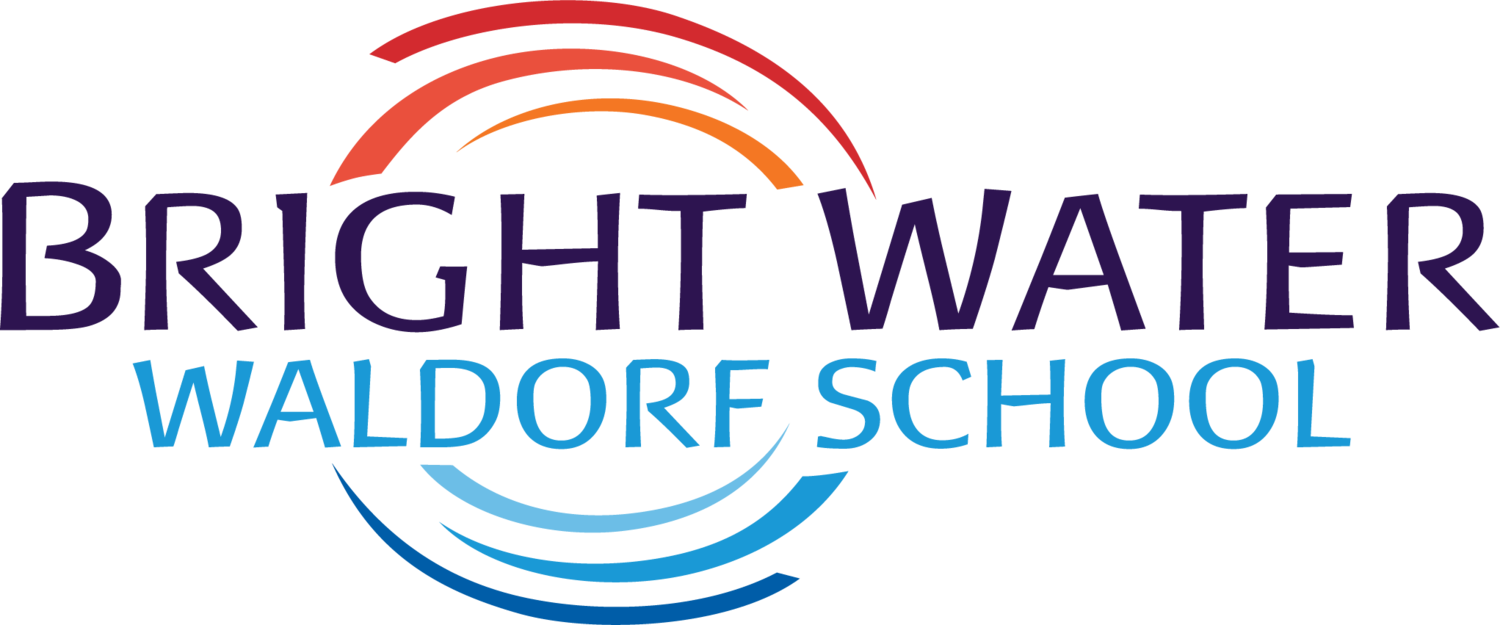Nurturing Creativity, Critical Thinking, and Compassion Through Integrated Learning
At Bright Water, we nurture the whole child by integrating creativity with core subjects like science, math, literature, and history. Through handwork, art, music, and movement, students engage with the world in diverse ways, strengthening their imagination and critical thinking. Our approach fosters empathy, empowerment, and care, helping students develop into compassionate, creative thinkers.
Our curriculum is multicultural, exploring world mythologies and the history of humanity, allowing students to connect culture, art, science, and crafts. Through intensive block lessons, students dive deep into subjects like eighth graders modeling human anatomy in clay or fifth graders studying Ancient Greece. They also create and illustrate their own textbooks, deepening their understanding.
Each grade participates in an annual class play, enhancing teamwork, social bonds, and self-expression. The continuity of a teacher allows for deep relationships and a strong understanding of each student's individual needs. Additionally, students are supported by specialty teachers in subjects like Japanese, Handwork, Music, Aikido, and Woodwork.
At Bright Water, our students thrive in a creative, supportive environment that prepares them for the future with curiosity, confidence, and connection.
“The need for imagination, a sense of truth, and a feeling of responsibility – these are the three forces which are the very nerve of education”
Building Community Through Mixed-Age Learning
Since the pandemic, Bright Water has adapted to better support our students' social and emotional growth. We've combined grades to encourage stronger social cohesion and provide organic support across age groups.
This thoughtful restructuring has allowed older and younger students to naturally collaborate, building connections and deepening their sense of community. We are excited to see how this shift has positively impacted our students' development, fostering empathy and mutual care across all grades.
Our current class configurations are Grades 1/2; Grades 3/4; Grades 5/6; and Grades 7/8.
Fostering Focus and Connection: Our No Cell Phone Policy
At Bright Water Waldorf School, we prioritize a human-centered approach to learning by maintaining a no-cell phone policy on campus.
In response to growing research on the impact of digital distractions and Seattle’s increasing emphasis on tech-free classroom environments, we believe it is essential to create a space where students can engage deeply, free from interruptions.
Our policy allows for uninterrupted focus, fostering real-time, face-to-face interactions that are vital to social and emotional development. By emphasizing analog teaching methods, we support the growth of critical thinking, creativity, and connection, ensuring that students experience the richness of their formative years in a mindful, present way.
Waldorf schools have always embraced this practice and see its benefits reflected in the well-being of students and families alike.



